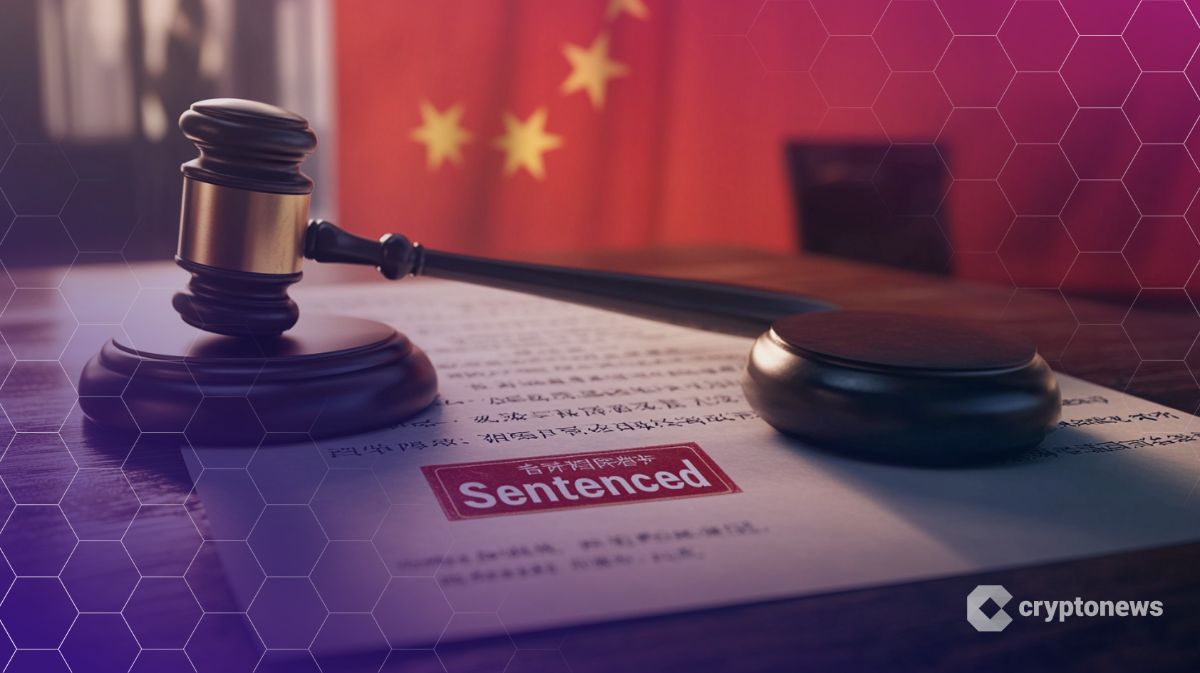
Beijing authorities sentenced tech executive Feng to 14 years for a $19.5 million crypto laundering scheme at a major short video platform.
According to a People’s Daily report, the Haidian District People’s Court convicted Feng and seven co-conspirators of occupational embezzlement after they illegally stole 140 million yuan in company incentive funds.
Prosecutors revealed that Feng leveraged his role overseeing service provider approvals and reward policies to create deliberate loopholes that external partners Tang and Yang exploited between 2023 and 2024.
From Bonus Incentives to a Multi-Million Yuan Fraud
Feng’s scheme began when he conspired with familiar external suppliers to manipulate the platform’s subsidy policies designed to attract new service providers and encourage operator activities.
He was said to have deliberately embedded vulnerabilities into new incentive bonus policies while secretly sharing confidential operational data with his co-conspirators outside the company.
Tang and Yang used this insider information to submit fraudulent applications that met incentive requirements, effectively claiming rewards meant for legitimate service providers and platform operators.
The trio rapidly escalated their operation by instructing accomplices to register multiple shell companies whose sole purpose was receiving platform rewards before quickly transferring funds through layered organizational structures.
Yang directed subordinate Wang to establish these phantom entities, which received the stolen incentives before funneling money into secret accounts controlled by the conspiracy’s leadership.
Shell Firms and Exchanges Layered Laundering Operation
The 140 million yuan theft marked only the beginning of a more complex international money laundering operation that would challenge Chinese investigators for months.
Feng instructed his partners to convert the embezzled funds into cryptocurrencies, including Bitcoin, across eight different overseas virtual currency trading platforms to obscure the money’s origins.
The conspirators employed sophisticated “coin mixing” techniques that obfuscated transaction paths through technical means, making it nearly impossible for traditional financial investigators to trace fund movements.
This mixing process allowed Feng’s network to further disguise the source, type, and circulation chain of their digital assets while maintaining plausible deniability about fund origins.
Portions of the laundered cryptocurrency were eventually converted back into Chinese yuan through covert channels and deposited into personal and corporate accounts controlled by core conspiracy members.
Prosecutor Li Tao from the Haidian District People’s Procuratorate’s Science and Technology Crime Prosecution Team used advanced electronic data review techniques to reconstruct the entire money flow.
Feng’s criminal organization ultimately surrendered more than 90 bitcoins they had hidden after facing irrefutable digital evidence, allowing the affected company to recover a significant portion of its losses.
The Haidian court ultimately sentenced all eight defendants to prison terms ranging from three to 14.5 years, with Feng receiving the longest sentence as the scheme’s mastermind.
Crypto’s Expanding Role in Global Financial Crime
Similar large-scale cryptocurrency laundering operations have surfaced across multiple countries, with Chinese authorities recently dismantling a $136 million network that used digital currencies for cross-border fund transfers spanning 10 provinces.
Brazilian authorities recently confronted an even larger operation where hackers stole $180 million from the banking system and immediately attempted to convert stolen funds to Bitcoin and USDT through cryptocurrency exchanges.
US prosecutors have also charged Russian crypto CEO Iurii Gugnin with orchestrating a $530 million fraud scheme using his Miami-based platform Evita to funnel payments through US banks and crypto platforms.
The sophistication of these operations has prompted legislative responses, including proposed cryptocurrency mixer bans, as lawmakers recognize that traditional anti-money laundering frameworks struggle with decentralized digital assets.
However, enforcement still faces significant technical challenges as mixing services like eXch continue to operate through backend infrastructure even after its official shutdown announcement.
This article first appeared at News

